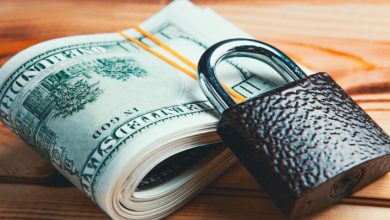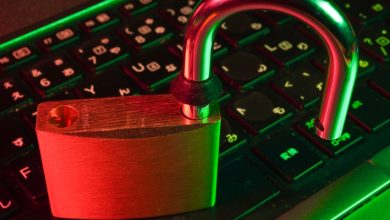The Importance of Wallet Security in the Crypto Space

- The Rise of Cryptocurrency and the Need for Secure Wallets
- Understanding the Risks of Hacking and Fraud in the Crypto Market
- Best Practices for Protecting Your Digital Assets
- The Role of Hardware Wallets in Ensuring Maximum Security
- Common Mistakes to Avoid When Managing Your Crypto Wallet
- Regulatory Measures and Industry Standards for Wallet Security
The Rise of Cryptocurrency and the Need for Secure Wallets
Cryptocurrency has seen a significant rise in popularity in recent years, with more and more people investing in digital assets as a means of diversifying their portfolios. As the adoption of cryptocurrencies continues to grow, so does the need for secure wallets to store these assets safely. With the decentralized nature of cryptocurrencies, there is no central authority to safeguard your funds, making wallet security of utmost importance.
Secure wallets play a crucial role in protecting your digital assets from theft and hacking attempts. By utilizing encryption techniques and private keys, wallets ensure that only the rightful owner has access to the funds. However, with the increasing sophistication of cyber threats, it is essential to choose a wallet that offers the highest level of security to mitigate the risks associated with storing cryptocurrencies.
When selecting a wallet, consider factors such as the type of wallet (hardware, software, paper, or mobile), ease of use, and security features offered. Hardware wallets, for instance, are considered one of the most secure options as they store your private keys offline, making them less vulnerable to online attacks. On the other hand, software wallets are convenient but may be more susceptible to hacking attempts.
As the value of cryptocurrencies continues to rise, the importance of wallet security cannot be overstated. By taking the necessary precautions to secure your digital assets, you can protect yourself from potential losses and enjoy peace of mind knowing that your funds are safe and secure.
Understanding the Risks of Hacking and Fraud in the Crypto Market
It is crucial to understand the risks associated with hacking and fraud in the crypto market. As the popularity of cryptocurrencies continues to grow, so does the number of cybercriminals looking to exploit vulnerabilities in the system. One of the biggest threats to crypto investors is hacking, where hackers gain unauthorized access to wallets and steal funds.
Hackers use a variety of techniques to breach security measures and access private keys or seed phrases. Phishing attacks, malware, and social engineering are common methods used by hackers to trick individuals into revealing sensitive information. Once a hacker gains access to a wallet, they can easily transfer funds out of the account without the owner’s knowledge.
Another risk in the crypto market is fraud, where scammers deceive investors into sending them funds or giving them access to their wallets. Ponzi schemes, fake ICOs, and pump-and-dump schemes are all common types of fraud that investors need to be aware of. These scams can result in significant financial losses and damage to the reputation of the cryptocurrency market.
To protect against hacking and fraud, it is essential for crypto investors to prioritize wallet security. This includes using hardware wallets, multi-factor authentication, and secure passwords. It is also important to be cautious of unsolicited messages or emails asking for personal information and to only use reputable exchanges and wallets.
By understanding the risks of hacking and fraud in the crypto market and taking proactive steps to protect their investments, investors can minimize the likelihood of falling victim to cybercriminals. Educating oneself on best security practices and staying vigilant against potential threats is key to safely navigating the crypto space.
Best Practices for Protecting Your Digital Assets
When it comes to protecting your digital assets such as cryptocurrency, it is crucial to follow best practices for wallet security. By taking the necessary precautions, you can minimize the risk of hacks, theft, and other security breaches that could compromise your funds.
One of the most important steps you can take to protect your digital assets is to use a hardware wallet. Hardware wallets are physical devices that store your cryptocurrency offline, making them much more secure than online or software wallets. By keeping your funds offline, you can prevent them from being accessed by hackers.
Another best practice for protecting your digital assets is to use strong passwords and enable two-factor authentication on your wallets. By using a combination of letters, numbers, and symbols in your password, you can make it much harder for hackers to guess. Two-factor authentication adds an extra layer of security by requiring a second form of verification, such as a code sent to your phone, to access your wallet.
It is also important to regularly update your wallet software to ensure that you have the latest security patches and updates. Hackers are constantly evolving their tactics, so it is crucial to stay one step ahead by keeping your wallet software up to date.
Lastly, be cautious of phishing scams and only use reputable exchanges and wallets. Phishing scams are a common tactic used by hackers to trick people into revealing their private keys or other sensitive information. By only using trusted services and being vigilant for signs of phishing, you can further protect your digital assets from theft.
The Role of Hardware Wallets in Ensuring Maximum Security
Hardware wallets play a crucial role in ensuring the security of your cryptocurrency assets. These physical devices are specifically designed to store private keys offline, making them less vulnerable to hacking and cyber attacks compared to software wallets.
By keeping your private keys offline, hardware wallets provide an extra layer of protection against online threats. This reduces the risk of unauthorized access to your funds and gives you peace of mind knowing that your assets are safe and secure.
Another advantage of hardware wallets is their convenience and ease of use. With their simple setup process and user-friendly interface, even beginners can securely store their cryptocurrencies without any technical expertise.
Furthermore, hardware wallets are immune to computer viruses and malware that can compromise the security of software wallets. This makes them a reliable choice for long-term storage of large amounts of cryptocurrency.
In conclusion, hardware wallets are an essential tool for anyone looking to maximize the security of their cryptocurrency investments. By keeping your private keys offline and out of reach of potential attackers, hardware wallets provide a secure and convenient way to store your digital assets.
Common Mistakes to Avoid When Managing Your Crypto Wallet
When managing your crypto wallet, there are some common mistakes that you should avoid in order to ensure the security of your assets.
- Using weak passwords is one of the biggest mistakes that crypto users make. Make sure to create a strong and unique password for your wallet to protect it from hackers.
- Not enabling two-factor authentication is another common mistake that can jeopardize the security of your crypto wallet. Two-factor authentication adds an extra layer of protection to your wallet and helps prevent unauthorized access.
- Ignoring software updates is a mistake that many crypto users make. Software updates often contain important security patches that can protect your wallet from vulnerabilities.
- Sharing sensitive information about your wallet publicly is a risky behavior that you should avoid. Keep your private keys and seed phrases confidential to prevent unauthorized access to your crypto assets.
By avoiding these common mistakes and following best practices for wallet security, you can protect your crypto assets and have peace of mind knowing that your investments are safe.
Regulatory Measures and Industry Standards for Wallet Security
In the realm of cryptocurrency, wallet security is of utmost importance to protect your digital assets from potential threats. To ensure a safe environment for users, regulatory measures and industry standards have been put in place to enhance wallet security.
One key regulatory measure that has been established is the requirement for wallets to comply with Know Your Customer (KYC) and Anti-Money Laundering (AML) regulations. By verifying the identity of users and monitoring transactions, wallets can prevent illicit activities and enhance security.
Industry standards also play a crucial role in improving wallet security. The use of multi-signature authentication, encryption, and cold storage solutions are now common practices in the industry. These standards help to safeguard funds and prevent unauthorized access to wallets.
Additionally, wallet providers are encouraged to regularly update their software to address any vulnerabilities that may arise. By staying informed about the latest security threats and implementing necessary updates, wallet providers can mitigate risks and protect users’ assets.
Overall, regulatory measures and industry standards are essential components in ensuring wallet security in the crypto space. By adhering to these guidelines, users can have peace of mind knowing that their digital assets are safe and secure from potential threats.




